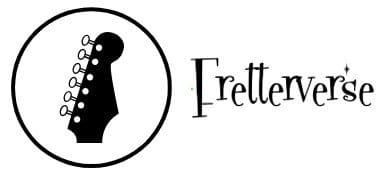Years ago, while meticulously crafting my first tenor guitar, I stumbled upon a fundamental truth that would forever change my approach to lutherie: the strings are the soul of the instrument. This realization sparked a journey into the realm of tenor guitar strings, where each string’s type, material, and tension told a story of sound and possibility. Today, I am eager to share this passion with fellow musicians, navigating through the myriad options that shape every note you’ll play.
In this ultimate guide, you’ll discover valuable insights and practical advice for selecting the right tenor guitar strings that enhance your performance and resonate with your musical style. From understanding string materials to exploring optimal tuning tips, my goal is to equip you with the know-how to unleash the full potential of your tenor guitar. Let’s embark on this exploration together, and may your strings sing their stories as vividly as they have in my hands.
What Are Tenor Guitar Strings?
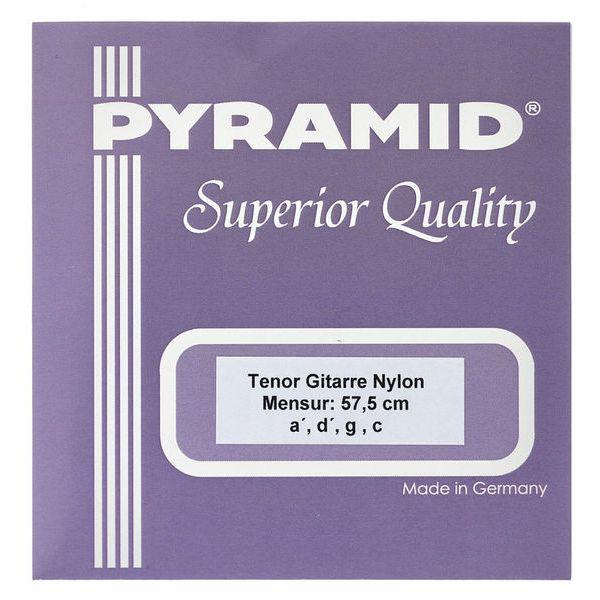
In my years of research in instrument acoustics, I have come to appreciate the unique qualities that tenor guitar strings bring to the sound production and playability of the instrument. As I delved deeper into the world of tenor guitars, their peculiar allure became undeniable. But what differentiates tenor guitar strings from regular guitar strings? It’s a question that many budding musicians ponder as they explore the nuanced landscape of string instruments.
Tenor guitar strings are designed specifically for the four-string tenor guitar, unlike the more common six-string setup of a standard guitar. These strings contribute to a distinct tonal palette, offering a sound that is both bright and rich, balancing melody and rhythm. The construction and tension of these strings are tailored to the shorter scale length of the tenor guitar. This design not only enables ease of play but also ensures that the instrument resonates with its signature clarity and punch.
The charm of tenor guitar strings lies in their ability to blend seamlessly into various musical genres. Whether you’re accompanying a folk ensemble or adding texture to a jazz piece, the versatility of these strings is remarkable. As we unravel the intricacies of tenor guitar strings throughout this guide, you’ll discover how choosing the right strings can transform your playing experience, imbuing your music with newfound expressiveness and depth.
Why Use Tenor Guitar Strings?

Are you maximizing your tenor guitar’s potential with the right strings? As a seasoned luthier, I have seen firsthand how the choice of strings can drastically alter the tone and feel of an instrument. The tenor guitar has a unique voice, distinct from its six-string sibling, and selecting the right strings is crucial to unlock its full expressive capacity.
Many players underestimate the impact that tenor guitar strings have on their instrument’s performance. However, the right set can truly make a profound difference. It’s not just about sound; it’s about how you feel when you hold the instrument and play it. The best tenor guitar strings will offer a brilliance and clarity that elevate your music to a new level.
From my workshops, I’ve learned that every set of strings carries a unique character, and finding the perfect match for your tenor guitar can transform your musical journey. Whether you’re exploring folk melodies or crafting complex jazz tunes, the strings’ tension and material greatly influence resonance and playability. This knowledge is essential to any serious musician eager to achieve deeper musical expression, allowing their instrument to sing with a voice truly in harmony with their artistic vision.
Understanding the nuances of string selection will empower you to make informed decisions and provide your tenor guitar the opportunity to shine. In the following sections, we will delve deeper into who should use them, when to change them, and how to select the perfect strings tailored for your needs.
Who Should Use Tenor Guitar Strings?
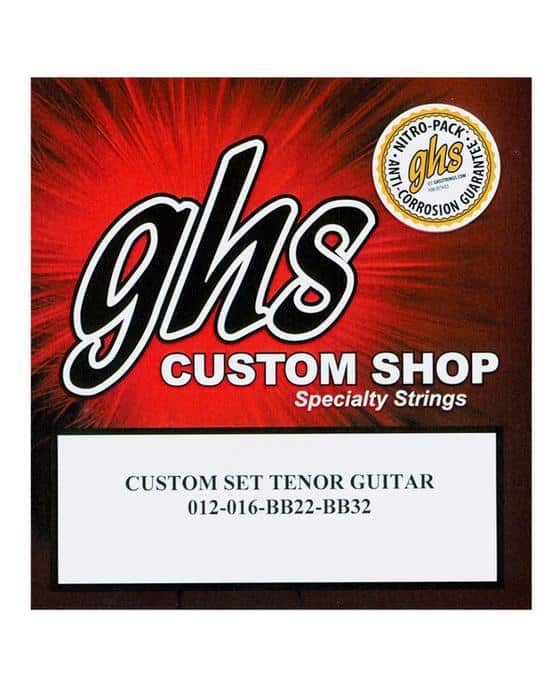
Is the tenor guitar the right choice for you, and how do the strings factor into that? Throughout my career, I’ve encountered various musicians who found their unique voice in the tenor guitar. This often happens due to its distinctive string setup and tuning characteristics, making it a versatile instrument for both beginners and seasoned players.
The tenor guitar is particularly suited for those who thrive on its simplicity and adaptability. **Whether you’re a mandolin player looking to expand your repertoire** or a ukulele enthusiast seeking richer tones, the *tenor guitar provides a bridge* between different stringed instruments. Its four-string format can be less intimidating than a six-string, yet offers a rewarding depth of sound.
Choosing the best tenor guitar strings is vital in shaping your playing experience. Your string preference will depend on the style of music you aim to play, from jazz to folk or even pop. Each type of string offers a different tonal quality, influencing the instrument’s overall sound. This makes selecting the right strings a *personal and critical decision* that will ultimately enhance your musical journey.
When to Change Tenor Guitar Strings
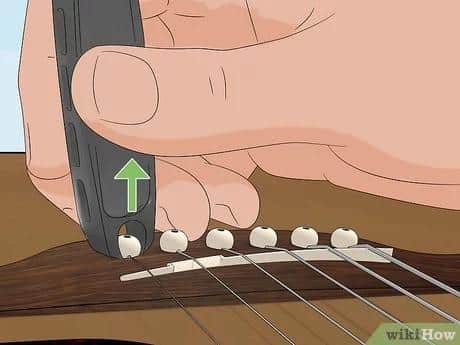
As a luthier, I’ve come to appreciate that the lifeblood of a tenor guitar’s sound lies in its strings. Regular maintenance is crucial. How often should you really be changing your tenor guitar strings to maintain optimal sound?? This question, often overlooked, is pivotal for preserving the vibrant tone of your instrument. From my workbench, the answer is simple yet depends on several factors, including your playing frequency, style, and the string gauge for tenor guitar.
Personally, I’ve observed that signs of wear often manifest as dullness in tone or difficulty in tuning—a clear signal that a change is overdue. For active players, a monthly swap is ideal, whereas more sporadic users might extend to every few months. The interplay between string wear and sound quality significantly shapes my lutherie instincts, allowing me to guide players in recognizing these subtle shifts.
By understanding your playing habits and how they affect string longevity, you ensure your tenor guitar consistently sings with clarity and resonance. With a keen ear and mindful observation, maintaining the integrity of your sound becomes second nature.
How to Choose Tenor Guitar Strings
Understanding String Materials
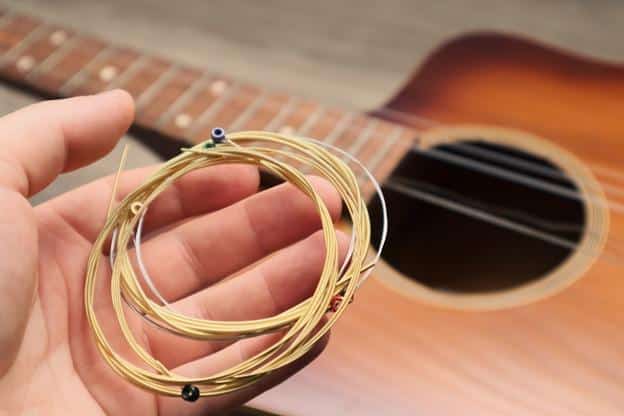
Did you know that the material of your tenor guitar strings can significantly impact your sound? My engineering background has taught me how different materials react to vibrations, which directly affects the tonal qualities of stringed instruments. When choosing tenor guitar strings, understanding the composition is essential. Bronze strings deliver a rich and bright tone, ideal for folk and blues genres, while nickel strings offer a warmer, vintage sound perfect for jazz. Steel strings provide a clear and crisp sound, balancing well with contemporary music styles. These intrinsic properties of string materials for tenor guitar guide your selection process, ensuring you achieve the desired timbre and playability.
Exploring this detailed understanding helps you make informed decisions that align with your musical aspirations, enhancing both performance and personal expression. As we transition to discussing gauge selection, remember that the interplay between materials and gauge offers a pathway to unlock the true potential of your tenor guitar.
Selecting the Right Gauge
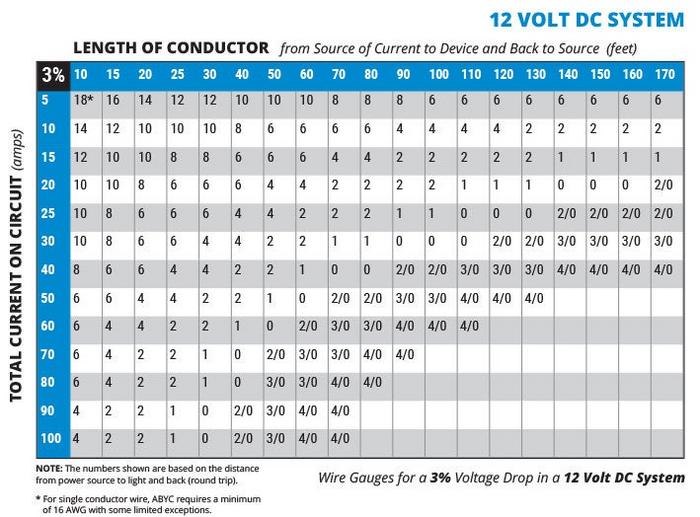
In my experience as a luthier, I have noticed that string gauge not only affects sound but also the player’s comfort and approach to the instrument. So, how does string gauge influence playability and tone on a tenor guitar? String gauge for tenor guitar is a crucial consideration when choosing the perfect strings. A lighter gauge generally provides an easier playing experience, especially for beginners, as they demand less finger pressure. This can enhance your ability to execute swift finger movements, fostering a more fluid playing style. Conversely, heavier gauges contribute a richer, fuller tone with deeper resonance and enhanced projection, but they also require more dexterity and strength.
In the context of choosing tenor guitar strings, balancing these aspects becomes essential to suit your specific playing style and preferences. With an understanding of how tone and playability are affected, you’re more equipped to make informed choices, enhancing both your performance and enjoyment of the tenor guitar. Let’s delve into the best brands to discover the perfect set next.
Best Brands for Tenor Guitar Strings
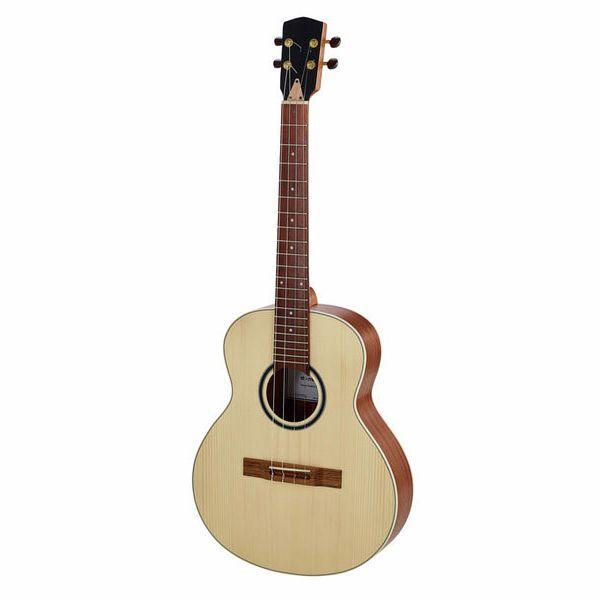
When it comes to selecting tenor guitar strings, choosing a reliable brand is crucial for sound quality and durability. Which brands are synonymous with quality when it comes to tenor guitar strings? Through extensive research and feedback from musicians, I’ve compiled insights on brands that consistently deliver *high-quality tenor guitar strings*. With a rich heritage in string crafting, D’Addario stands out for their balanced tone and longevity. Music professionals often praise their phosphor bronze strings for producing a warm resonance perfect for folk and jazz genres. Similarly, GHS strings are renowned for their affordability and robust build, making them an excellent choice for experimental musicians who frequently change strings.
Martin strings offer a premium option, with many tenor players loving their smooth feel and rich, vintage tones. Experimenting with these brands can *significantly enhance* your tenor guitar experience, offering varied textures and sounds to explore. With these expert recommendations in mind, you’ll be well-equipped in your journey through the multifaceted world of tenor guitar strings. Next, delve into practical tips on how to string and tune your instrument to perfection.
How to String a Tenor Guitar

Having worked with a myriad of instruments over the years, I’ve developed a straightforward approach to stringing that can boost your confidence and skill as a player. Is the process of stringing a tenor guitar as daunting as it seems? From my experience, the answer is a reassuring no. Let me guide you through it, infusing my knowledge and passion for these versatile instruments into every step.
To begin, gather your tools: a set of fresh strings, a string winder, wire cutters, and a tuner. Start by carefully removing the old strings one by one, tying them off to prevent unwinding. This cautious approach protects the neck from sudden changes in tension, preserving your guitar’s integrity.
Next, it’s time for the new strings. Feed each string through the appropriate bridge hole and pull it taut. Here’s where technique makes a difference; wrap the string around the tuning peg, ensuring it coils downward without overlaps or gaps, aiding stability and tuning accuracy.
As you tune each string up to pitch, which we’ll explore further in the next section, check for proper tension and ensure the coil tightens neatly. Completing this process with care and attention will not only enhance your playing experience but also extend the lifespan of your strings. By demystifying how to string a tenor guitar, I’m confident you’ll find joy in this fundamental skill, transforming it from routine maintenance into a moment of creative engagement with your cherished instrument.
Tuning Your Tenor Guitar
Standard Tuning for Tenor Guitar
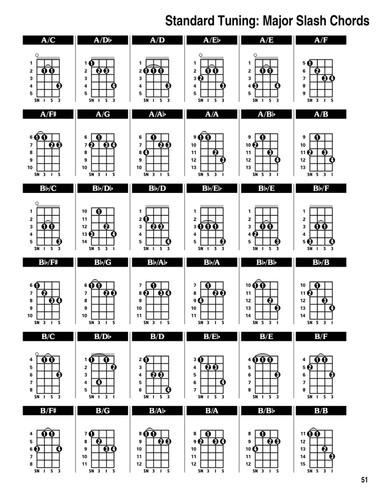
What is the standard tuning for a tenor guitar, and why is it important? In my lutherie practice, I emphasize standard tuning—CGDA—as the foundation for unlocking the instrument’s melodic possibilities, establishing a common language among players. This tuning mirrors that of the viola and tenor banjo, providing a seamless transition for musicians familiar with these instruments. The logical progression of intervals opens a versatile palette for both chordal and melodic playing, making it a pivotal choice for players wishing to explore a diverse range of genres.
The tenor guitar tuning serves as an essential guidepost in developing skill and versatility, offering a shared structure that enriches musical communication. By creating consistency in string pitch, standard tuning simplifies the learning curve, crucial for beginners and a valued asset for seasoned musicians looking to expand their repertoire. This structured approach fosters technical precision and creative expression, a hallmark of mastering the tenor guitar.
Alternative Tunings
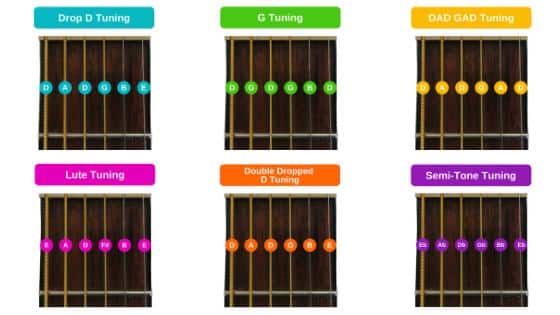
How can alternative tunings open new creative avenues for tenor guitar players? My exploration of these tunings has led to exciting musical discoveries—these variations can inspire players to develop their unique styles. Venturing beyond standard tenor guitar tuning introduces a fresh palette of sonic possibilities that often transcend traditional barriers. For instance, trying a tuning like CGDA or GDAE can change the mood and tonality of a piece, making even familiar chords sound novel. Such adjustments can unlock new harmonies and resonate with different musical genres, from jazz to folk. This diversity encourages players to shift creatively, potentially finding their signature sound.
Incorporating alternative tunings enriches the tenor guitar’s versatility, making it an increasingly dynamic instrument. As part of mastering your instrument, understanding and experimenting with these tunings could significantly enhance your playing experience and performance potential, complementing the other string selection and tuning tips discussed earlier in the guide.
FAQs
What are the different types of tenor guitar strings?
What are the recommended tenor guitar strings for beginners?
How do you tune a tenor guitar?
Can tenor guitar strings be used on a regular guitar?
Conclusion
As I reflect on the nuances of string selection, it becomes clear that understanding these elements is vital for every tenor guitar player committed to their craft. What are the key takeaways about choosing and using tenor guitar strings effectively? To begin with, it’s essential to choose the best tenor guitar strings that suit your individual playing style, genre preferences, and desired sound quality. Whether you’re drawn to the clear, bright tone of phosphor bronze, or the robust warmth of nickel, recognizing the characteristics of different materials can significantly enhance your guitar’s performance.
The right string gauge is equally important, providing the comfort and playability that aligns with your technique. Regularly assessing your strings and knowing precisely when to change them can maintain the vibrancy of your sound. Additionally, mastering different tuning methods opens up a world of musical possibilities. By considering these factors, each of us can elevate our playing and fully embrace the tenor guitar’s unique voice, enriching our musical journey.
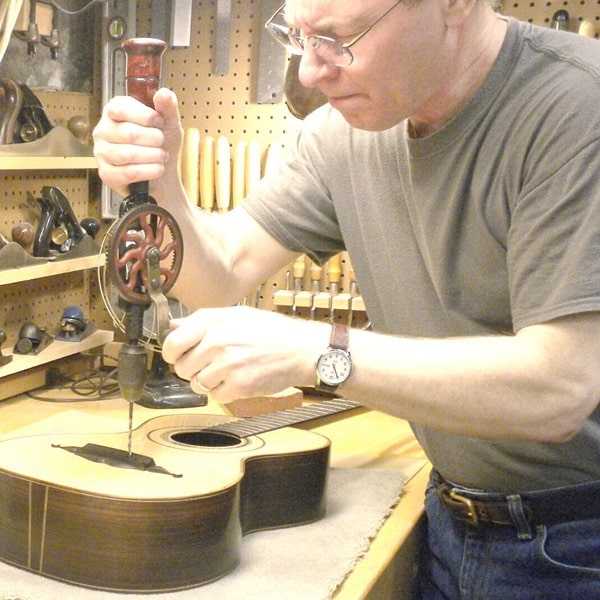
R.M. Mottola, an engineer-turned-luthier, revolutionizes stringed instrument design with his deep focus on acoustics and ergonomics since 1994. As editor of the Savart Journal and a key contributor to American Lutherie, Mottola merges science with artistry in lutherie. He enriches the field with his extensive knowledge, shared through his Liutaio Mottola website, making him a beacon in the world of modern instrument craftsmanship.
